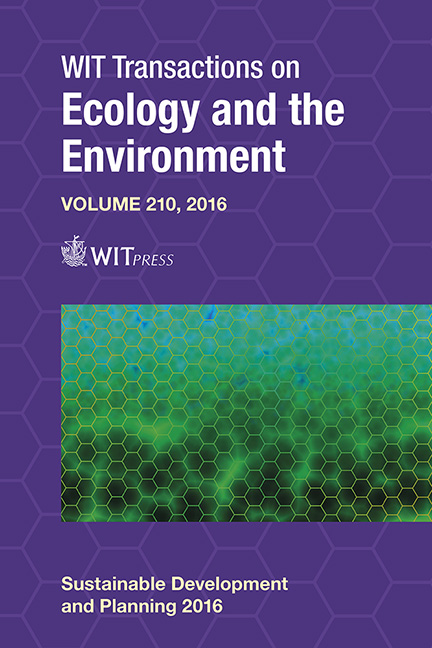Natural Risks And Vulnerability Management In Urban Water Supply Systems
Price
Free (open access)
Transaction
Volume
210
Pages
14
Page Range
687 - 700
Published
2017
Size
2,694 kb
Paper DOI
10.2495/SDP160581
Copyright
WIT Press
Author(s)
R. Egea, A. Trapote
Abstract
In this research, a management model of urban hydraulic infrastructures related to natural hazards is analysed and shown, and different components of the system are characterized and analysed, including pipes, premises and equipment, passive and active devices, communications networks, security systems and surveillance, as well as procedures of planning, operating, and maintenance of the infrastructure. The implementation of the methodology proposed can help to make decisions during the process in real time when you find natural hazards, because through their incorporation into a SIG PLATFORM (System Information Geographic) risk scenario, we can generate a first estimation of incidents and damage of the managed territory.
This management model unifies and integrates all the parameters and variables necessary to anticipate and mitigate the possible catastrophic effects (loss of lives, damage to basic infrastructures). Since it raises possible scenarios, which are updated in real time, we can use as a decision-making tool and as a reliable element, that ensures the operation of this essential system for people and human activities in general. The proposed new designs of equipment and devices increase the operational reliability of the system in the case of hydrogeological catastrophic events due to their functional characteristics.
This methodological tool of management is particularly useful. Furthermore, it can be used, as an urban planning instrument and as a basic element to look up the database for the civil defence, damage mitigation and risk control in the hydraulic urban infrastructure system, increasing resilience, and efficient management to the effects of climate change and the greater variability of natural hazards.
Keywords
vulnerability, natural hazards, urban water, risk, reliability





